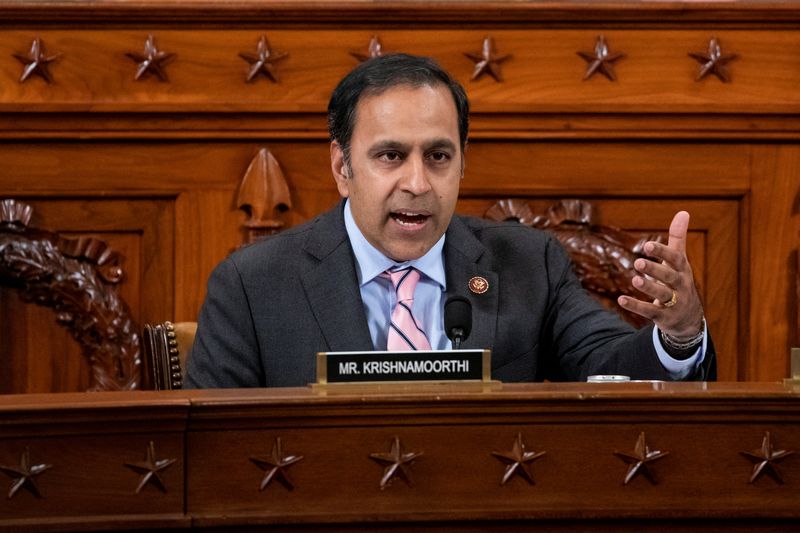By Kanishka Singh and Deborah Mary Sophia
(Reuters) - The chairman of the U.S. House of Representatives subcommittee on economic and consumer policy sent a letter on Tuesday to major U.S. meat processing companies, seeking information on rising prices and profits.
The companies included Tyson Foods (NYSE:TSN), JBS Foods, National Beef and Seaboard. Representative Raja Krishnamoorthi, the chairman of the panel, asked for information about price increases on beef, pork and chicken products, the panel said on Tuesday.
"While some companies may claim that the high prices feeding these outsized profits are explained by higher input costs, earnings data tell a different story," Krishnamoorthi said on Tuesday.
"I am deeply concerned that meat processing conglomerates may have engaged in predatory business practices, at the expense of consumers, during the pandemic", he added.
Krishnamoorthi has asked for information and documents from each company by Feb. 8, explaining their decision to increase prices of their products despite rising profits. He also asked for an explanation on what the companies planned to do to lower prices in the coming year.
He said that net profit margins for the four biggest meatpacking companies have shot up over 300% since the start of the coronavirus outbreak and accused the firms of increasing their profits "at the expense of the American families".
The North American Meat Institute, an industry group that represents meatpackers, said labor shortages, supply chain challenges, and consumer demand were driving price increases for consumers.
"Rather than addressing these challenges, the Subcommittee is seeking confidential business information about pricing", the association added.

White House economics advisers said https://reut.rs/3nZLXwd last month that the biggest meat-processing companies have tripled their net profit margins since the COVID-19 pandemic started.
The White House, hammered by Republicans over rising inflation, is scrambling to combat rising prices by clearing supply chain logjams and tackling what it views as uncompetitive practices by big companies, which are reporting big profit gains as consumers suffer.